UK Space Command has hosted its inaugural space wargame, “Space Warrior,” at the Defence Experimentation and Wargaming Hub in Southwick Park, Hampshire, according to a press release.
The exercise aimed to integrate commercial space-based Intelligence, Surveillance, and Reconnaissance (ISR) with the UK’s defence capabilities.
The wargame saw participation from staff across the Ministry of Defence, industry, and international allies. Major General Paul Tedman, Commander of UK Space Command, oversaw the event, which aimed to explore how commercial space-based ISR can complement defence’s own space-based ISR systems, including the Programme ISTARI.
This programme aims to deliver a constellation of defence satellites for space-based ISR by 2031.
“Space Warrior has provided critical insights into what on-orbit ISR capability we need and how much. Crucially, it has also evaluated whether we should own the capability, access it through commercial or collaborate with allies. I’m grateful to our industrial partners and military allies for their participation, input, and support. Space is a team sport,” stated Major General Tedman.
Rear Admiral Andrew Betton, Strategic Command’s Director of the Integrated Warfare Centre, also emphasised the importance of this exercise. “Through wargames like Space Warrior, which explore opportunities beyond our current capabilities and expertise, we are working to develop tomorrow’s integrated force,” he said.
Betton highlighted the need to consider activities across all domains. “It is vital that we consider our activities across all domains, and Space Warrior is an important step forward in expanding our understanding of how we can most effectively operate in this challenging domain, and the multiple interdependencies that enable multi-domain operations,” he added.
Allen Antrobus, Chair of the Security and Defence Committee at UK Space, praised the event as a significant milestone. “UK Space Command’s inaugural Space Warrior Wargame was a timely and well-run event as we head into the next Strategic Defence Review. The inclusion of colleagues from across the industrial sector was an important step forward in demonstrating the MOD’s commitment to listen and engage with the wider defence industrial base,” Antrobus said.
In addition to the wargame, UK Space Command is preparing to launch its first satellite, Tyche, this summer. Tyche will be the first in a network of new satellites under Programme ISTARI, operating in Low Earth Orbit with a high-resolution electro-optical sensor designed and built in the UK as part of a £22m contract with Surrey Satellite Technology Ltd.
The satellite will be launched by SpaceX from Vandenberg Space Force Base in California.
Since its formation in 2021, UK Space Command has participated in various exercises and wargames worldwide. “Space Warrior” is set to become a regular event, fostering stronger relationships and understanding among UK Space Command, its allies, partners, and industry.
At the UK Defence Journal, we aim to deliver accurate and timely news on defence matters. We rely on the support of readers like you to maintain our independence and high-quality journalism. Please consider making a one-off donation to help us continue our work. Click here to donate. Thank you for your support!



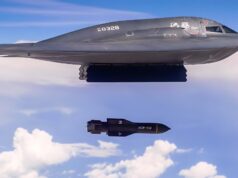
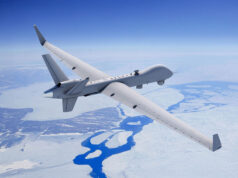

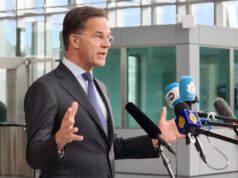

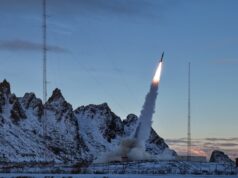
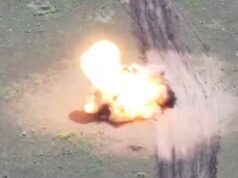

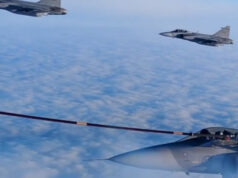

“whether we should own the capability, access it through commercial or collaborate with allies. “
Well that is hardly even a question. We should own capabilities. But, we are minnows in this, the US, to whom we are joined in this, dwarfs us in all areas and provides most of the capabilities which we are also fortunate to access.
Building up meaningful capability will take time, the ISTARI constellation is a very good start.
The US no longer owns many of its one EO satellites, it has military commercial contracts with many of the same companies as us. I agree we should definitely own our own assets however we can leverage private sector ones as well.
OneWeb is the prefect example, we are the only country in the world other than the US with our own military LEO communication constellation and both are provided by private companies although in the UK the government had to stump up the cash.
Also similar with sky-net, the UK now has global coverage with skynet 5 + which it never had in the past and in part this is done by adding in commercial capability in areas like the pacific that the UK would not normally use.
“The US no longer owns many of its one EO satellites”
A day may come when this is the case but that day is many years into the future.
It cost the US and the Soviets a great deal to get started however they have done all the hard work and the next steps are far easier and the kit is getting smaller, cheaper and better. Now is a good time to do this.
I hope the review retains the constellation we have planned.
Difficult to be sure of anything nowadays 🤷
Yes, I know you share my concerns with this lot. Their first months hardly been glorious.
They made all the tough calls the said they would after being left a series of unfunded pledges and they have committed to protect defence spending. They also cut benefits. What’s not like?
Or another translation, Reeves cut winter fuel payments while she, as an MP, kept her 3 grand plus heating allowance?
Have they committed to protect defence spending? I’d missed that. That does not mean they’ve committed to avoid cuts.
What’s not to like?
Read my comments on the Iran thread.
But to give the chancellor her due, the winter fuel thing is meant for the more better off pensioners, with the poorer protected.
Absolutely. At 73 the winter allowance for me is nice but not essential, if I use energy wisely and pay in installments. For many more comfortably off the WFA is pocket money.
Better to target those who REALLY need it.
I hope so, would be madness to give it up.
Agreed and the stars should be aligning (no pun intended!) as far as the UK being able to build its own capabilities is concerned.
The UK’s satellite design and manufacturing capabilities are already very strong and the costs of launch are now so much more affordable than they were a few decades ago due to the number of commercial launch providers in the market, many of whom (not just SpaceX) are aiming to reduce cost per kg to LEO even further with various levels of rocket reusability on their roadmaps.
If was different in the 1970s, 1980s and for a while after that but now that launch costs are now a commercial rather than a national competence with prices trending strongly downwards we really shouldn’t be looking at this as an exotic “only the superpowers can have this” capability.
We will never be able to come anywhere close to replicating the USA’s breadth and depth of capabilities but we really should be able to afford to build a very worthwhile sovereign capability of our own if we had the political will to do so.
Agreed Julian.
It is needed for the ISTAR aspects alone.
Hmmm the guy checking his watch says it all. These look like a bunch of managers deciding which bunch of serious techies from their organisation will be at the next one. Hopefully a bunch of guys that actually know what they are doing.😂
All you need to do is watch the Battlestar Galactica reboot series as that tell you all you need to know.
It looks like it was held in the local community hall. “You guys will have to clear the hall by 5 for setting up for the amateur dramatics group production of Count Arthur Strong the Musical”
And our capabilities? The Uk needs to own critical (Level 1,red) such as Intel, Comms ourselves. Second level systems would be in the areas of Recon can and should be shared capabilities. Low level stuff (green) can be commercial. So in old terms top secret and above we own it, secret shared and confidential info commercial.
I am starting to wonder if we need to have defence sytems for our satilites.
https://www.defensenews.com/space/2024/07/26/space-force-mulling-nuclear-protection-for-missile-tracking-satellites/
Pretty sure Space Invaders was the first space war game. I had a summer job in an amusement arcade. It involved using plastic buckets to empty all the coins from those machines, they made a fortune for the owners
arguably Space Wars was first
What happened with OneWeb and our supposed low earth GPS now that we have a golden share I thought we were build the second satellites with this capability. I know one web have merged now with Eurosat but we still have an investment golden share. There was the study to see how we can positioning and timing service in LEO satellites and then went quiet. No longer in the European GNSS and seem to have wasted our 500m investment in One Web. Satellite manufacturing still seems largely in Florida etc etc. So what was it all for!
They are still working on something with OneWeb however after experience in Ukraine they have come to realise that LEO communication constellation is far more useful than a precision navigation signal.
Agreed. I always thought that the UK’s OneWeb stake could be justified solely by how much value a high-bandwidth, low latency massively wide coverage (almost global) secure network could deliver to the military. Being able to bolt-on a GPS capability would be extremely valuable as well but in my view not necessary to justify the initial investment. I do still hope it is being looked at though. It would at least be good to fully scope out the technical issues.
I’m disappointed that the UK diluted its ownership but at least it has retained its golden share that (as I understand it) allows it to veto any future changes in ownership and be able to say what commercial customers are allowed to use the network.
Despite my enthusiasm, in the context of this site DRS’s “what was it all for” question is not unreasonable. OneWeb only starts justifying my enthusiasm if there are military applications where it is being used. Maybe that is already the case and we aren’t hearing much because it’s mostly classified. I wonder for instance if special forces might already be using OneWeb for much higher bandwidth communications and we just don’t know about it, and/or how many future drone projects might be anticipating using OneWeb as a comms channel. Just maybe there’s more stuff going on already that we don’t know about.
Star Wars? Strange, I thought the UK was already up to speed in the area of space and defence?
According to the recent TV advert campaign the RAF can knock out incoming space debris from a control room, this saving valuable hardware in orbit.
It’s true then, it must be, because it’s been shown on TV!
If the authorities were to be really honest, the REAL danger comes not from another country on the globe, but natural and frighteningly deadly lumps of rock and iron that date back millions of years. But before we all contact the A.S.A. with complaints about fake claims, why don’t the RAF clarify those claims and admit that they cannot shoot down incoming asteroids or comets with current technology.
The dangers of a terminal collision involving Earth and a lump of space are far, far higher than an attack from somewhere on the planet.
I think that all sides need to clarify just WHAT they need to protect ourselves from in this highly technological, and frighteningly expensive proposals.
Is it to defend ourselves against possible but highly unlikely nuclear attack from another country?
OR, most likely and ultimately lethal destruction from a huge lump of something currently out there in space that is waiting for celestial mechanics and bad luck to wipe out billions and leave us all with a nuclear winter that will kill even more through starvation and disease?
The former is largely a unlikely threat, made serious by certain arms manufacturers who can see the $$$$ signs flashing like mad. Nobody seriously wants a global nuclear conflict because they know only took well the horrible outcome for all.
But the latter is now known to be not only possible, but at present completely out of our hands. Some of the most alarming incoming lumps of rock and iron have either arrived without any warning at all, or at best a few hours. So far we have been lucky, property damage and sleepless nights for a while. But if a really big one finds itself pulled into our orbit not by politics or human stupidity, but celestial mechanics it will be a bit late to start pressing panic buttons.